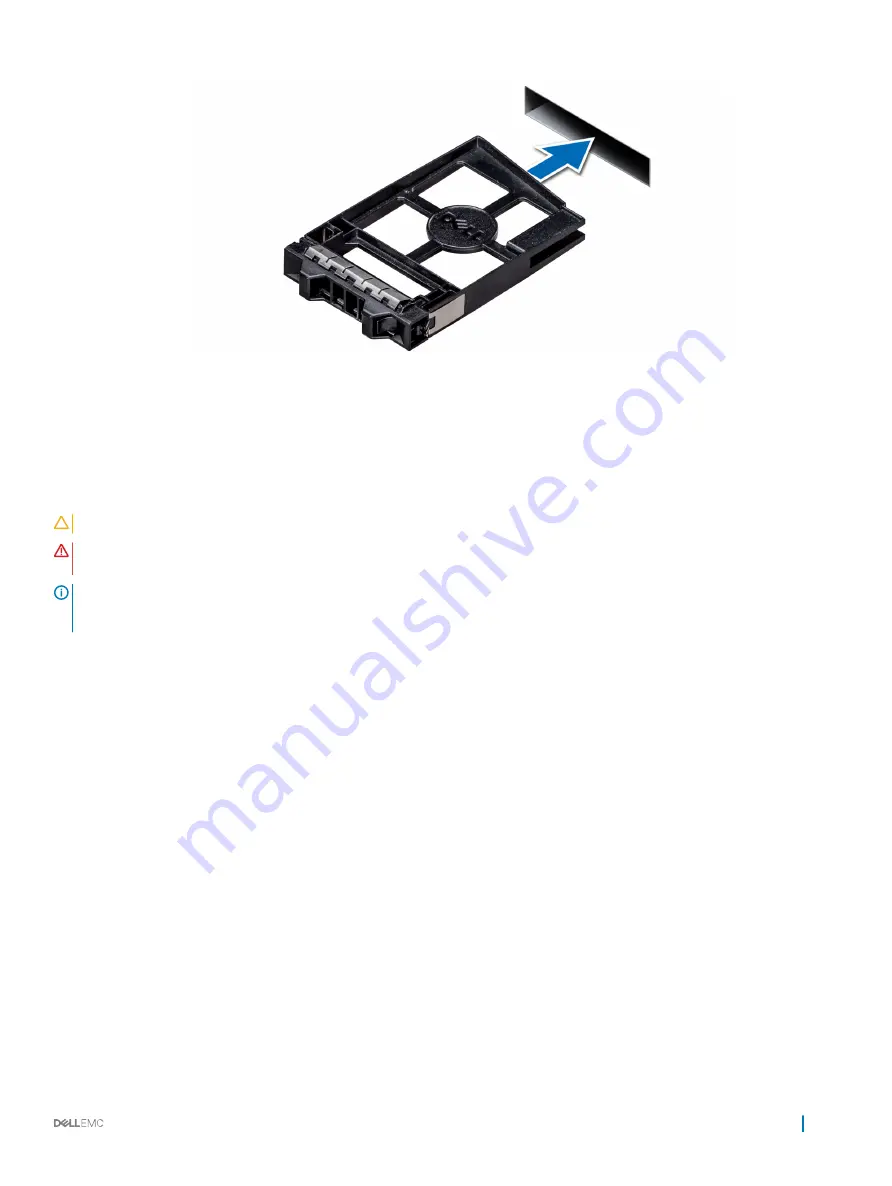
Figure 14. Installing a drive blank
Removing a drive carrier
Prerequisites
CAUTION:
To maintain proper system cooling, all empty drive bays must have drive blanks installed.
WARNING:
Ensure that you back up your data, before removing a drive. For more information about preparing your drive for
removal and supported RAID redundancy, see the Troubleshooting guide of your system at Dell.com/poweredgemanuals.
NOTE:
Using the management software, prepare the drive for removal. If the drive is online, the green activity or fault indicator
flashes while the drive is turning off. When the drive indicators are off, the drive is ready for removal. For more information, see
the documentation for the storage controller.
Follow the safety guidelines listed in
Steps
1
Press the button on the drive carrier to open the release handle.
2
Holding the release handle, slide the carrier out.
Installing and removing system components
57






























